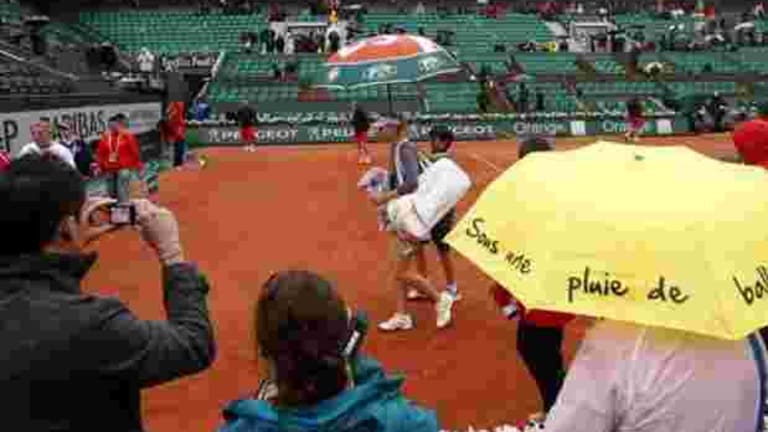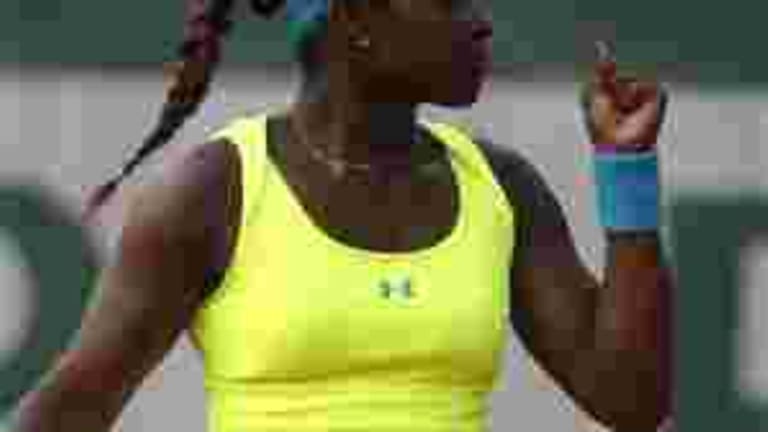Speaking of witty tennis starlets, America’s version, Sloane Stephens, is also in Paris, and she’s playing pretty well. She trounced countrywoman Vania King today to move into the third round. Like Robbo, Sloane hasn’t so much been on a learning curve as a learning roller-coaster since her own Grand Slam breakout, in Australia in January. After beating Serena Williams there, Stephens has lost in the first round five times, and has occasionally sounded apathetic about her results and her game. The coverage of her in the U.S. has revolved entirely around Serena—are they friends?; is she her successor?; was Serena her mentor? The biggest news Sloane has made since Australia was when she complained that Serena wasn’t nice to her.
It has been a public learning process for Stephens, and pretty much everything she has done has been criticized. So it probably shouldn't have come as a surprise that she wasn’t her usual bubbly self after her first-round win at the French Open. Coming out of her press conference, journalists lamented about how “subdued” she was, and it’s true, Sloane wasn't linguistically inspired that day:
“Paris is Paris,” was all she had to say about the City of Light.
“Attention is attention,” was her description of the media crush around her since Australia.
“It is what it is,” was her analysis of her career at the moment. Paris makes some people philosophical; it seems to have made Sloane tautological.
But Stephens also said something else: “I’m only 20 years old, so I have a lot to learn and a long ways to go.”
That’s simple, but it’s true, and hopefully Sloane can live by those words and not worry about every loss and every negative story that comes along. Stephens, as she says, has things to learn; even today, she was content to cruise to the ball and rally from behind the baseline, rather than pushing forward and building points. But if the Brits can give Robson time, Americans should be able to do the same for Stephens. She’s already in the Top 20, and she has the bigger upside.
Sloane could play Maria Sharapova in the round of 16 in Paris. If she gets there and pulls off an upset, she’ll almost certainly be granted a new persona in the media: “big-match player.” The embarrassments of the last few months would suddenly be a memory. But even if Sloane loses in the next round, hopefully this week will be one for the experience bank.
Today, in her presser, Sloane talked about her thinking process during rain delays:
“You literally have nothing to do. Should I eat? Do cartwheels? You have no idea what to do, so it’s just kind of your lost. But it is what it is.”
OK, that’s another tautology. But it sounded like she had a little of her bubble and wit back.

